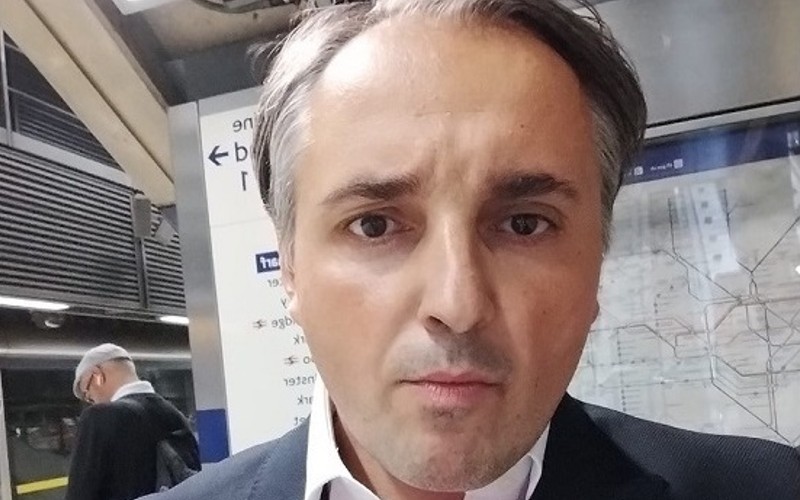As economic and financial crime grows across the world, the RegTech sector has also swelled to help institutions protect themselves and their clients.
But are the tools they provide sufficient to guard against sophisticated criminal networks?
Marius-Cristian Frunza, founder and CEO of Schwarzthal Tech, is a respected voice in the space. The author of several books on modern-day financial crime, he is an expert witness for litigations, disputes and financial crime cases in the British courts.
“There is a massive gap between [how] the world of financial crime [works] and what corporate institutions are doing to tackle the problem,” he tells BusinessCloud.
“This can lead to unforeseen events such as sanctions and the directors of institutions being personally held responsible in courts.”
Lords of Scam
Frunza, a PhD in mathematical finance at the prestigious University of Sorbonne, first encountered the world of financial crime while working as a carbon broker 15 years ago.
Indeed he played a key advisory role during the production of Lords of Scam, a Netflix documentary in 2021 focused on the carbon quota system scandal which saw tens of billions of dollars fall into the hands of criminals.
“The market and industry where I was active was corrupted by financial crime. The tools that were around in various financial institutions to fight this weren’t efficient,” he says.
By 2017, RegTech was a recognised subsector in technology but far smaller in size than it is today. “There was much more space, valuations were lower and the big companies of today were embryonic back then,” says Frunza.
In a recent blog post (see below), he wrote of the subsequent boom: “The RegTech sector is overbought, resulting in massively inflated valuations of juvenile companies.”
He argues that many solutions are marketed as being powered by artificial intelligence or machine learning, when in fact they are exercises in “box-ticking”.
“You do some basic checks and see whether you comply with the regulations, but you don’t really solve the problem,” he continues in our interview.
True AI platform
In contrast, Schwarzthal Tech – second on our RegTech 50 innovation ranking last year – has created an AI platform, Wunderschild, that fights financial crime by gathering publicly available information and assessing potential customers’ connections with criminal or suspicious networks.
It aims to revolutionise the way compliance works in the financial sector by shifting the approach from traditional ‘know your customer’ (KYC) policies towards a new concept – Know Your Network™.
“The big issue that people have when dealing with financial crime is connecting the dots,” Frunza explains. “You have various information available, but crime is not about one criminal, it is about wider criminal networks.
“Our platform doesn’t focus on one person or company, but goes towards something broader: it looks at all their connections across the world.”
Employing graph-based databases to assess and investigate complex cases, it can be also used to monitor transactions. It displays a score in the traditional red, amber and green format, according to how risky a potential client seems to be.
“Before us, it was basically impossible: if you have [a network containing] a company in China, one in Singapore, one in Malaysia, one in the UK and one in Russia, all the information is in different repositories, different languages, and nothing is done to unify them,” he says.
“If there are sanctions placed against someone or court documents [for example], it’s very difficult to bring everything together.
“We saw the need for a tool where you can pull the data from all available resources – public and private – to screen, monitor and assess the risk of working with a company based upon its wider network.”
Real-time
He says that a Big Four consulting firm would need to deploy a team of 10-12 people to produce a similar, if less impactful, result. “They would have to sort through all the available information online – a lot of manual labour, less standardised, less tailored – and try to come up with a report. It would also be limited to one jurisdiction.
“With us, all this work is done in pushing a few buttons, and it can also be done in large-scale batches. You can continuously analyse the work, and the number of tasks per hour can be massively increased.
“It also enables real-time decision-making and learning.”
RegTech 50 – UK’s most innovative compliance technology creators for 2022
Around 30 corporate companies – “SMEs and above” – and 100 smaller clients such as private individuals and small investors use the platform. Frunza is keen to democratise the fight against financial crime by making the platform available to all.
“The price of these other [RegTech] services is very high. If you’re an SME and want to screen what is happening with a client, those solutions are not affordable,” he says.
Schwarzthal Tech raised £150,000 in a pre-seed funding round from SFC Capital last year and is also supported by the Mayor of London, London & Partners and Startupbootcamp accelerator.
Alongside a pilot with a tier one British bank, it is also working closely with institutions across the EU including consulting firms, asset managers and commercial banks.
With a team of around 15 – including 12 engineers – Frunza hopes to close “at least five tier one and tier two banks in the UK and EU” in the coming months before turning his attention to the lucrative US market.


